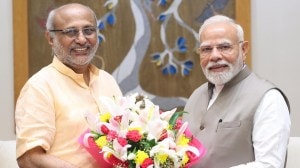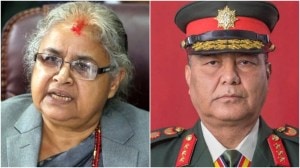Civil servant shares video of his conversation with Russian woman who is able to understand Hindi
J. Sanjay Kumar, an officer in the Indian Railway Traffic Service, shared the video on X on Hindi Diwas.
 J Sanjay Kumar, an officer in the Indian Railway Traffic Service, shared his conversation with the Russian woman.
J Sanjay Kumar, an officer in the Indian Railway Traffic Service, shared his conversation with the Russian woman. On the occasion of Hindi Diwas, which is celebrated on September 14, a civil servant shared a fascinating video on X showing a Russian woman who is able to translate Hindi into English.
J Sanjay Kumar, an officer in the Indian Railway Traffic Service, shared his conversation with the Russian woman. Kumar is seen speaking to the woman in chaste Hindi who not only understands what he is saying but is able to translate the words into English.
“Leave translation, many of us will not be even able to understand it. The level of proficiency this Lady from Russia have in Hindi is simply amazing. By the way how is my Hindi ? Hindi Diwas !!!!” Kumar wrote on X.
Watch the video below:
Leave translation,many of us will not be even able to understand it. The level of proficiency this Lady from Russia have in Hindi is simply amazing. By the way how is my Hindi ? Hindi Diwas !!!! @IndEmbMoscow @Russia pic.twitter.com/t0bMzhg7oj
— J.Sanjay Kumar,IRTS (@Sanjay_IRTS) September 14, 2023
“Best wishes to everyone on Hindi Day,” a user commented. “Very good sir. Happy Hindi Day sir. Only officers like you are keeping Hindi alive in the true sense because you are connected with our soil,” another user wrote in Hindi. “Amazing,” said a third.
In March, a content creator from South Korea, with the username korean.g1, had shared a video on Instagram explaining how there are many common words in Korean and Hindi with the same meaning and almost identical pronunciation.
The first she said was, “ek saal, do saal, teen saal”. In Hindi, that translates to “one year, two years and three years”. In Korean, she said it is “un saal, two saal, three saal”. Then she said the Hindi word for broom ‘jhadu’ is common in Korean as well which is ‘bitjaru’.
Photos



- 01
- 02
- 03
- 04
- 05



























